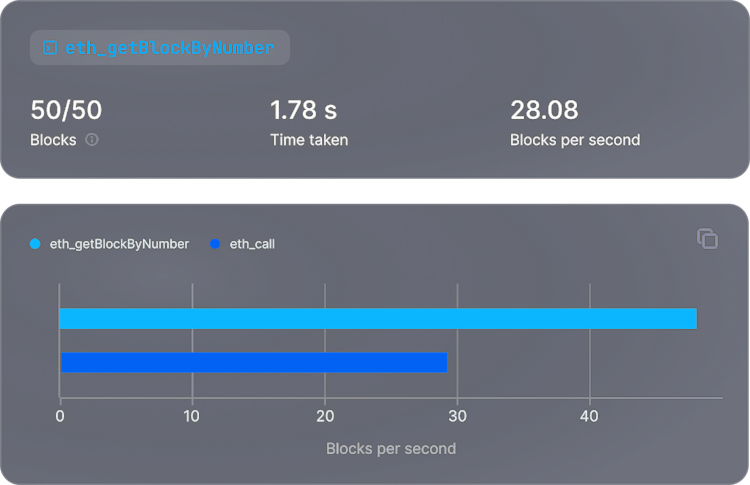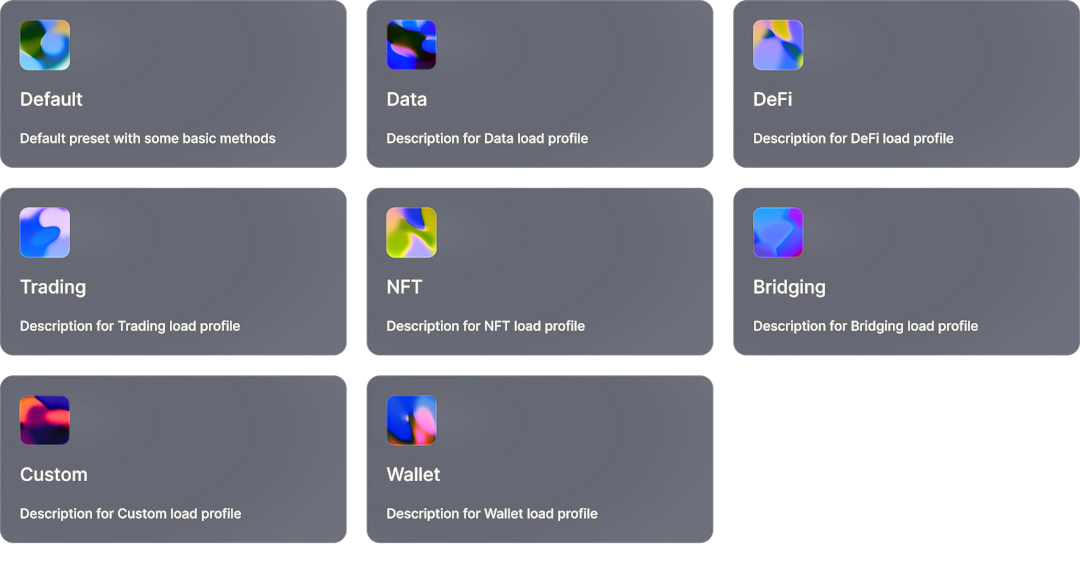Test RPC endpoint
performance
Ethereum RPC methods that fetch blockchain data.
Supported networks
Chainstack Compare is tool to measure the node performance metrics that make sense.
The tool runs server-side on an instance maintained by Chainstack.
Server-side instance specs:
2 vCPUs with 2GB of RAM
Contract:
CompareNodePerformanceThe tool does a few calls to the exact same dummy contracts deployed on a few EVM networks. The tool measures the performance from three data points:
- the number of processed blocks with the calls;
- the time it takes to process the blocks with the calls;
- the resulting blocks-per-second metric, or the expected data throughput.
As you can see, all the parameters are uniform except for the one you care about and feed to the tool — your node endpoint.
Learn how Chainstack Compare works under the hood and why we built it ↗.
Performance
Metrics that make sense
No random latency numbers. Chainstack Compare measures how your node performs based on real data-fetching.
Different testing methods
Test a single endpoint or compare a few different ones. Do an eth_call, trace a transaction (upcoming), and more.
Open source
We believe in giving back to the community. Our tool will be open source, accessible to all.
Different profiles
Profiles based on the most common industry scenarios.
FAQ
What is your stack?
We selected Python to leverage its concurrency capabilities, aiming to highlight how RPC nodes perform in fetching data efficiently while keeping a developer-friendly approach.
Which chains/protocols/networks are supported?
Chainstack Compare is designed to test EVM-based RPC nodes. If you have a network that's not supported by the tool yet, let us know!
Which methods are used for measurements?
Chainstack Compare runs profiles based on standard Ethereum RPC methods that fetch blockchain data. Currently, it tests RPC endpoints using eth_getBlockByNumber and eth_call. More methods coming up.

